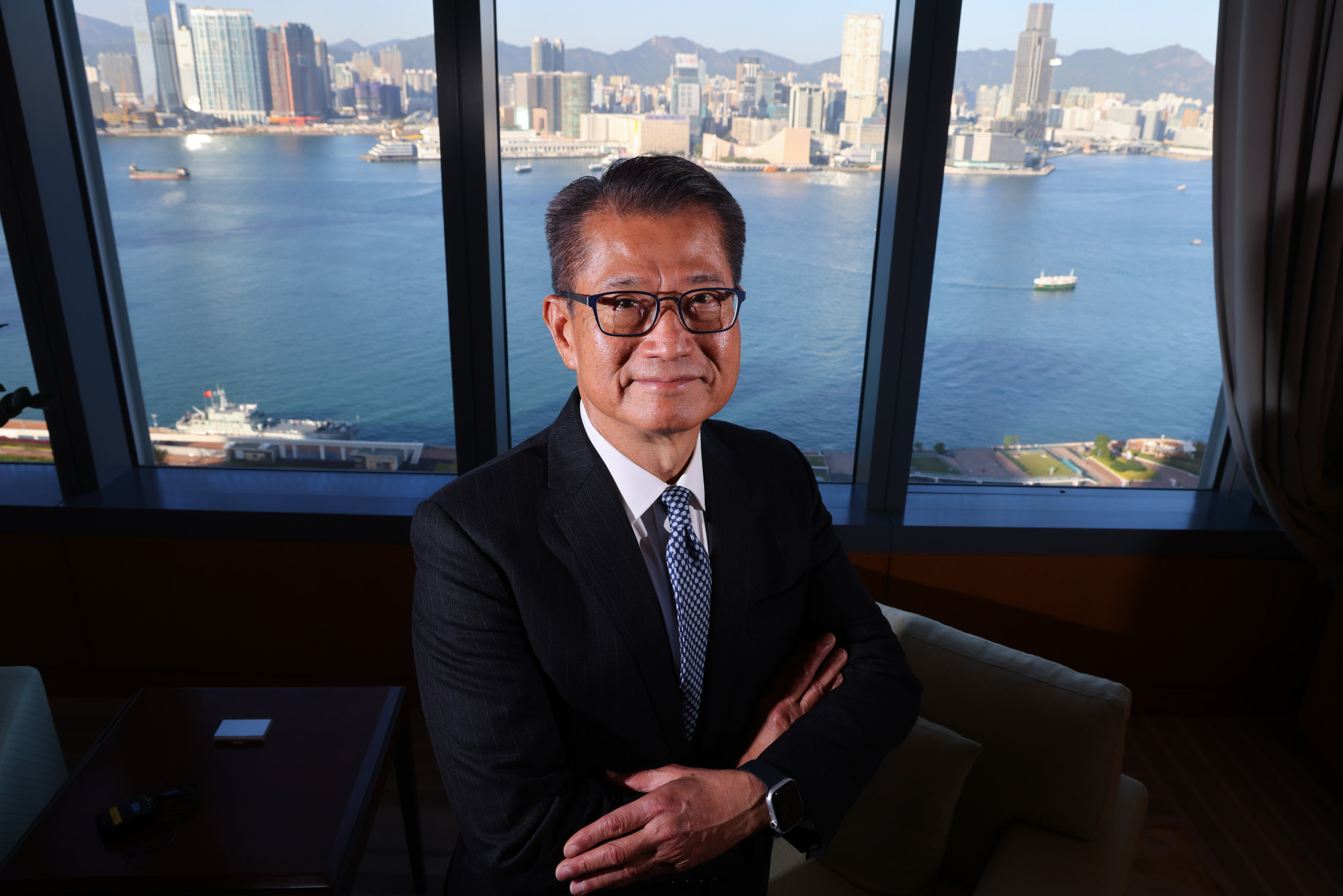
Hong Kong to review some charges for public services to help balance its books
- To increase sources of revenue, government to review charges for public services, which have not been adjusted for long time, finance chief says
- Economist says any increases could be aligned with rate of inflation, which grew by 2.1 per cent in first 11 months of 2023, year on year
The Hong Kong government will review some charges for public services and those based on a user-pay principle in a bid to raise revenue while lowering long-term infrastructure investments by encouraging private partnership to cut spending, the financial secretary has said.
Chan is in the process of gauging public views ahead of his budget speech expected to be delivered next month.
“We are determined to consolidate public finances, cut expenditures and increase revenue and gradually restore balance to government revenue and expenditures,” he said in his weekly blog on Sunday. “It cannot be too slow or too hasty. During the process, the affordability of different classes of society and the operating conditions of different industries must be carefully assessed.”

The minister promised to ensure that underprivileged groups would continue to receive support through the social security net.
To increase sources of revenue, the government would review charges for public services, which have not been adjusted for a long time, Chan said.
Others subject to change were those based on the user-pay principle, the costs of which the government currently could not recoup at all, he added.
The Post learned that Chan had yet to identify which types of charges would face adjustments.
Billy Mak Sui-choi, an associate professor at the department of accountancy, economics and finance at Baptist University, said a number of charges and fees had remained unchanged for some time, such as those for using government sports facilities, registering a business and operating a vehicle.
“It is reasonable to raise some of these fees after they stayed the same during years of the pandemic and even since the social unrest,” he said, referring to the anti-government protests in 2019.
He said some of the increases, if approved, could be aligned with the local inflation rate, which grew by 2.1 per cent in the first 11 months of 2023, year on year.
Mak noted the main revenue streams for the government were the profits and salaries taxes, land premiums, and stamp duties on property purchases and stock trades.
Hong Kong deficit hits HK$164.1 billion for first 8 months of financial year
Finance chief Chan stressed the government would maintain its competitiveness in the global market by keeping the tax regime simple, indicating the government would not raise rates.
To reduce expenditure, the government would seek alternative financing models for infrastructure projects that involved longer timelines, possibly involving the private sector, he said
The arrangement avoids using taxpayer dollars and going to the Legislative Council for approval. The authority is also charging departing travellers up to HK$180 to recoup part of its investments in the new runway.
The runway, which cost HK$141.5 billion, started initial operations in 2022 after construction began in 2016.
Middle Eastern countries eager to invest in Hong Kong mega projects: Paul Chan
His estimate of a HK$110 billion deficit for 2023-24 was bigger than the HK$54.4 billion forecast he made last year.
The city’s fiscal reserve will shrink to HK$724.8 billion as of March 31 2024, from HK$834.79 billion in 2023, according to the latest estimate from accounting giant PwC.
The city ran a deficit in the 2019-20 financial year, and the following one but returned to a surplus in 2021-22, before falling back into the red last year, logging a HK$122.33 billion deficit in 2022-23.

